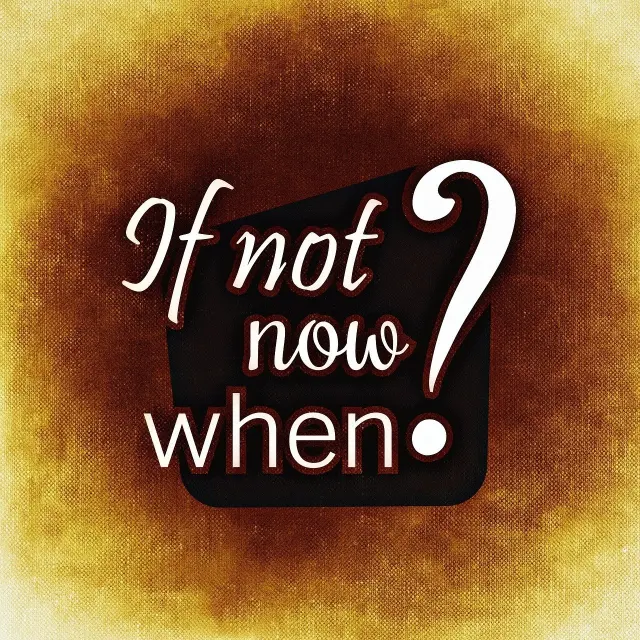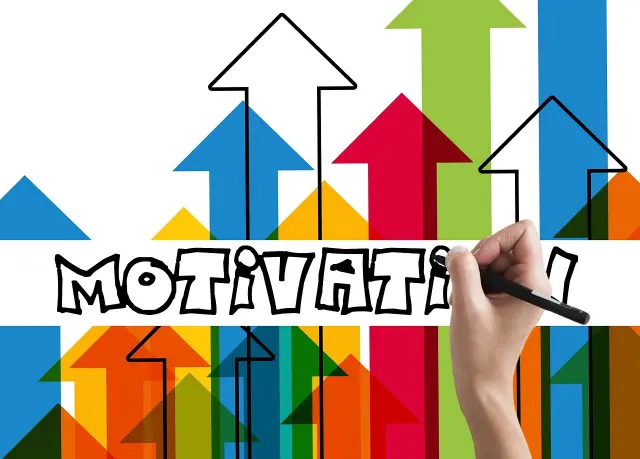Leadership Coaching, Executive Coaching: Developing Successful Leaders with the Challenges of Business Life
Introduction
The business world is constantly changing, and successful leaders need to be at their best, both in terms of corporate goals and personal and professional development.
I rarely use quotes, I prefer to draw on my own experience, but I can confirm this statement by Heraclitus myself, I have experienced it myself many times and it is still part of my life and I think part of everyone's life:
"The only constant is change itself."
Heraclitus 535 BC
As both a Top Manager and a leading business consultant and coach, I am ready for change every day, and I make the change myself when I can. But I only keep and apply what is a win-win for everyone - at least I try to do so.
Az üzleti világ dinamikusságával, az igazi vezetőknek nem csak a vállalati célokra kell összpontosítaniuk, hanem a saját személyes és szakmai fejlődésükre is. Az executive coaching – vagy más néven vezetői coaching – olyan eszköz, amely lehetővé teszi a successful leaders to raise their efficiency, stress management and strategic thinking to even higher levels.
In this article, I will explore, or rather I will say explore (for the sake of convenience and because I don't always want to put myself in the centre), how the executive coaching managers and what concrete results this development process can deliver.
At the same time, we will explore how you can make your leaders in executive coaching, and present concrete cases to show the results that can be achieved.
These are not specific, I cannot write them down. It is as hard for me as doctor-patient or lawyer-patient confidentiality!
On the other hand, I use all my knowledge and experience in this field without specifics in order to help my partners and clients in the best way possible.
Executive Coaching
The executive coaching - also known as executive coaching - is a catalyst that enables leaders to unlock their potential, manage stress and develop strategic thinking. In this article, we take an in-depth look at
Why do we need Executive Coaching?
Successful business leaders not only create results, they also inspire and guide their teams. The executive coaching provides a high level of support to help leaders lead more effectively, manage conflict and plan strategically. Leaders who are open to improvement and know they can get more out of themselves, their company and their team can benefit enormously from from executive coaching.
Executive Coaching in Business Life
As in executive coaching My approach to success and efficiency reflects the nature of business. In previous years, I gained experience in the role of a corporate executive, where I experienced strategic decision-making, change management and growth challenges. These skills have been applied in executive coaching to leaders who are looking for further development.
Executive coaching - coaching tools
Leadership coaching is a process whereby a coach helps a leader in your development and in achieving your goals. A coaching tools techniques and methods that the coach uses in his or her work with the leader.
The aims of executive coaching
The drivers coaching has several objectives can be, among other things:
- Developing leadership competences
- Improving management performance
- The drivers hatékonyság növelése
- The drivers stress management
- The drivers karrierfejlesztés
Types of coaching tools
* coaching tools that a coach can use in his or her work with the leader. These tools fall into the following categories:
- Communication tools: these tools help the manager to communicate with the develop your skills, such as feedback, assertive communication and conflict management.
- Management tools: These tools help managers to develop their leadership skills, such as strategic thinking, business decision-making and teamwork.
- Personal development tools: these tools help the leader in his or her personal development, for example, in setting objectives, stress management and self-confidence.
Some popular coaching tools
There are several popular tools in executive coaching, including:
- The objective-setting: This tool helps the manager to set specific, measurable, achievable, relevant and time-bound goals.
- Giving feedback: This tool helps the manager to accept and use feedback.
- Az asszertív kommunikáció: Ez az eszköz segít a vezetőnek az egészséges és hatékony kommunikációban.
- Conflict resolution: This tool helps the manager to manage conflicts.
- Strategic thinking: This tool helps the manager to set and achieve long-term goals.
- Business decision-making: This tool helps the manager to make effective decisions.
- Teamwork: This tool helps the manager to build and manage teams effectively.
- * personal development: this tool helps the leader in his/her personal development, such as goal setting, stress management and self-confidence.
Choosing the coaching tools
* when choosing coaching tools, the coach should take into account the leader's your individual needs and goals. The coach should use tools that are effective in helping the leader to in its development and in achieving its goals.
The use of coaching tools
* when using coaching tools, the coach should be flexible and adaptable. The coach should use tools that are relevant and useful to the leader.
The benefits of coaching tools
* coaching tools with many advantages for drivers, including:
- Developing leadership competences
- Improving management performance
- * vezetői hatékonyság növelése
- Managing stress in management
- Management career development
* coaching tools to help managers can become more efficient and successful.
The use of executive coaching tools
* when using coaching tools, the coach should számos szempontot kell figyelembe vennie. Először is, a coachnak tisztában kell lennie a vezető egyéni igényeivel és céljaival. A coachnak olyan eszközöket kell használnia, amelyek hatékonyak a vezető fejlődésében és a céljainak elérésében.
Secondly, the coach must be flexible and adaptable. The coach should use tools that are relevant and useful to the leader. The coach should be ready to modify the the coaching processif necessary.
Third, the coach must create a supportive and trusting atmosphere. A to coach encourage the leader to talk honestly and openly about his or her own thoughts and feelings.
Negyedszer, a coachnak felelősségteljesnek kell lennie. A coachnak segítenie kell a vezetőt abban, hogy elkötelezett legyen a coaching folyamat iránt és a céljai elérése iránt.
The benefits of executive coaching tools
* coaching tools can bring many benefits to managers, including:
- * leadership competences Development: coaching tools help leaders develop their leadership skills, such as strategic thinking, business decision-making and teamwork.
- Improving management performance: Coaching tools help managers to improve their performance, for example in achieving goals, managing conflict and coping with stress.
- Improving leadership effectiveness: coaching tools help leaders to improve their effectiveness, for example by time management, task management and communication.
- Managing stress in management: Coaching tools help managers to manage stress, such as developing a healthy lifestyle, learning relaxation techniques and developing a positive mindset.
- A vezetői karrierfejlesztés: A coaching eszközök segítenek a vezetőknek a karrierjük fejlesztésében, például az új lehetőségek felfedezésében, a személyes márkaépítésben és a kapcsolatépítésben.
The drivers coaching tools are powerful tools for developing leaders and helping them achieve their goals. The coach must carefully select and apply the right tools based on the individual needs and goals of the leader.
Case studies: the successes of Executive Coaching
The case studies not all of them were paying customers, because I have helped many, many people in my circle of friends and acquaintances in the past, for which I have not asked for any compensation. Perhaps it is a bit strong to call them case studies, because I have not developed the 'cases' in anywhere near the detail of a case study. This is because I intend them more as food for thought, as a teaser.
I discovered later that I had helped so many people with so many different problems and issues that with so many business masters degrees and so many years of real-world management experience and experience behind me and in front of me, I needed to reframe that a little bit. Time is an asset to everyone, irretrievable and one of the greatest values, so I no longer hand it out - although there are still some very specific exceptions.
So a few examples, (read more here, in the blog articles) to give you a better understanding of what I'm talking about with 1 - 1 examples - within the framework of the blog, of course. Apart from these, there were many more, which I will talk about and briefly describe in the articles on the subject. Imagination helps me to think further, and if not, I'm happy to be available business coaching - mostly online, to save time for everyone...
Case Study 1: Effective Stress Management and Performance Improvement
I helped a senior executive of a multinational company who was constantly under stress and work-life balance struggled with the challenges of. From executive coaching, we have focused on stress management techniques and effective time management. Personalised strategies have helped him to react calmly and effectively in stressful situations. The coaching helped her to increase her productivity and improve her communication with her clients.
Case Study 2: Developing Corporate Culture and Communication
I was approached by a startup leader, an acquaintance, who felt that the corporate culture did not support innovation and offensive communication. From executive coaching, we took an in-depth look at the corporate values and communication processes, what we didn't have, we developed and created. The result was that together we developed a new corporate culture and communication strategies that increased team engagement and improved corporate performance.
Case study 3: Team building and conflict management
The CEO of a medium-sized company came to me because he felt that increasing tension and conflict in his team was making work difficult. He knew that I had had to deal with such situations before, in different situations, but more than once.
I try to create win-win situations in such cases, but of course this is case by case and not always feasible.
The executive coaching we worked together on analysing team dynamics, identifying communication problems and developing conflict management skills. The result was a more harmonious and effective team working in concert towards common goals.
Case Study 4: Personal Effectiveness and Achieving Goals
One company manager has found himself faced with the challenge of finding a balance between day-to-day operational issues and long-term goals. From executive coaching we have selected priorities, developed an effective time management strategy and improved your personal efficiency techniques. The result was a manager who managed business activities more effectively while maintaining his long-term goals.
Case Study 5: Developing a Corporate Growth Strategy
The CEO of an IT company was finding it increasingly difficult to find the right growth strategy. From executive coaching we carried out in-depth strategic planning, analysing market trends and competitors.
(Well, I had an extra advantage here because of my IT/Telecom background.)
The coaching helped her to develop a new, differentiated market position and a growth plan by asking the right questions and providing the right guidance in the right situation. The result has been a significant growth leap and the company has positioned itself in the market an order of magnitude more effectively.
Case Study 6: Leadership Reconciliation and Self-Expression
A division manager in a large company felt he had lost motivation and passion for his job. From executive coaching we've discovered the causes and found ways to help you get back to work. The coaching supported her to become more self-expressive in her leadership role and to find a balance between personal and professional goals.
The Future of Executive Coaching: The Evolutionary Process
The executive coaching has an exciting future ahead. The technology virtual coaching is becoming more and more feasible, enabling managers to benefit from coaching anytime, anywhere. Through online platforms, leaders have easy access to experts who can help them grow personally and professionally.
The Key to Successful Leadership Development
The executive coaching is not just a tool for developing corporate leadersbut a real key to success. Based on my experience and success stories, I can confidently say that the impact of coaching is real and long-lasting.
The Value and Potential of Executive Coaching
* executive coaching or executive coaching is proven to contribute to the development of leaders and improve business results. The cases show that with coaching better manage challenges, develop leadership skills and achieve strategic goals. If a successful leader or, if you are looking for further growth and development, executive coaching can be a powerful tool in your journey.
Best regards,
Rob - CoachLab.hu
Some frequently asked questions and answers
...to help search algorithms find my readers and prospective clients...
What is executive coaching and how is it different from traditional coaching?
A: Leadership coaching is a high-level personal development process that focuses specifically on improving leaders' effectiveness, leadership skills and strategic thinking. While traditional coaching covers more general areas, executive coaching focuses specifically on leadership and business challenges.
What are the benefits of executive coaching for companies and managers?
A: Executive coaching helps leaders navigate the changing business environment more effectively, develop their leadership skills, strengthen their strategic thinking and manage stress more effectively. Coaching enhances leadership effectiveness and contributes to better teamwork, innovation and business results.
How do I choose the right executive coach for myself or my business?
A: Choosing an executive coach is a very important decision. It is important to find a coach who has experience in corporate leadership and with whom you can find a common voice or even trigger a flow experience from the first conversation. In general, leaders understand each other because of the similar challenges they have experienced or are experiencing, which is why I recommend choosing a coach with actual business leadership experience.
How long does the executive process of executive coaching take?
A: Executive coaching is a longer-term process, usually lasting from a few months up to a year, or longer depending on the need. The process is determined by the client's goals and needs. The first phase usually involves one or more diagnostic interviews, followed by regular meetings, so-called coaching sessions and development activities throughout the coaching process.
To what extent does executive or exec. coaching impact company results?
A: The impact of executive coaching can be felt and measured over the long term. In many cases, executive development has a positive impact on teamwork, workplace climate and company performance. Thanks to coaching, managers lead more effectively, make more sound decisions and deal more effectively with business challenges.





















